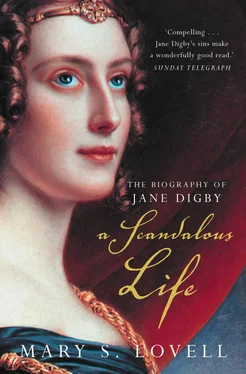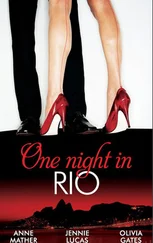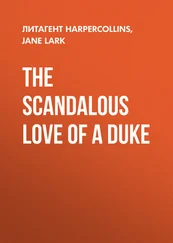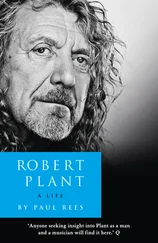Oh Juliet, if to have no fear
But that of deserving thee,
To know no peace when thou art near
No joy thou can’st not share with me
If still to feel a lover’s fire
And love thee more the more prospect,
To have on earth but one desire
Of making thee completely blest!
If this be passion, thou alone
Canst make my heart such passion know.
Love me but still, as thou hast done,
And I will ever love thee so.
Ellenborough, 12 November 1824
To which his bride of two months readily replied within twenty-four hours:
‘To love thee still as I have done’
Say, is it all thou ask of me?
Thou has it then, for thou alone
Reign in the soul that breathes for thee.
Edward, for thee alone I sigh
And feel a love unknown before
What bliss is mine when thou art nigh
Oh loved one still, I ask no more
As thou art now, oh ever be
To her whose fate in thine is bound
Whose greatest joy is loving thee
Whose bliss in thee alone is found.
And she will ever thee adore
From day to day with ardour new
Both now and to life’s latest hour
With passion, felt alas! … by few.
Juliet, 13 November 1824
Those words ‘whose greatest joy is loving thee’ hardly reinforce the image of a girl coerced into an unwanted marriage, nor charges that the marriage was a failure from the day of the wedding, and these facts are important in view of what was to follow. Visitors to Elm Grove found the couple happy together and living in terms of open affection. 1 They rode out together most mornings when Edward was at Roehampton, often across Richmond Park. 2 Joseph Jekyll, who visited the Ellenboroughs just before Christmas, wrote: ‘I dined and slept … at Roehampton to be presented by Lord Ellenborough to his bride. Very pretty, but quite a girl, twenty years younger than himself 3 … The general subject was his lordship’s lamentation at being called away so frequently from his beautiful wife by debates and politics.’ 4
The poetry and literary love-making during Ellenborough’s absences continued for months, whenever Ellenborough was away from Jane, and some, such as the following extract from a poem written on New Year’s Day 1825 while he was staying at Boldrewood in Hampshire with Lord Lyndhurst, the Attorney-General and a close friend, is illuminating:
My bride! For thou art still a bride to me
And loved with all the passion of a soul
Which gave itself at once, nor would be free …
Yet I have had a roving eye, till now,
And gazed around on every lovely face
And still would, all enthralled to beauty, bow
But ne’er in fairest features could I trace
The sympathetic smile, and winning grace
Which beam aloft on thy illumined brow
And every thought of others is effaced
In dreams of bliss which heaven’s behests allow
So wedded truth alone, and love’s unbroken vow,
Ellenborough
Unless this poem came as a shock to her it seems that Jane was aware of Ellenborough’s reputation as a womaniser; he freely admits that he is still a potential rover were he not in love with his wife and her sympathetic smile and winning grace.
During her husband’s many absences Jane was initially content to get to know her new homes and learn the ordering of them. Steely was a visitor to Roehampton several times, as were Lady Andover and Lady Anson. Nor was Roehampton far from London, should Jane have felt the want of company. Once the 1825 season started, though, Jane removed to town and immediately her name featured regularly in the court page of the Morning Post as guest of socially prominent hostesses, often – but not always – accompanied by her husband, and also as the hostess herself of several formal dinners and a ball.
As the year wore on, however, hairline cracks began to appear in the fabric of the marriage. Lady Londonderry had earlier commended her former son-in-law for the five years of happiness he had given her late daughter, and Ellenborough’s biographers claim that the first Lady Ellenborough, Octavia, was the love of his life. Ellenborough is on record as saying that in his opinion whatever good he had done in his life was due to his first wife. 5 Perhaps it is not surprising, then, that Jane, feeling rejected by her husband’s frequent absences and hurt by his apparent coolness, attributed the neglect not to his work but to his love for the dead Octavia.
In a poem to him, written about the time of the first anniversary of their wedding, answering Edward’s comment on her ‘lack of gaiety’, she asked his forgiveness for her jealous fears that Octavia ‘thy love of former years still reigns, while every thought and wish of mine is breathed for thee alone’. Beyond doubt she believed herself in love with her husband when she asked plaintively, ‘did her passion equal mine? Her joy the same when thou art near? And if not present did she pine?’
And here I am the fond, the young,
The blest in all that earth can give,
By men beloved, by lovers sung,
Yet silent, loveworn do I grieve. 6
Why did this marriage, which had begun so well, run into trouble so quickly? On the face of it Jane had everything most women of her world could have wished: love, wealth and social position. At least Edward’s poetry proclaimed love, and whatever his faults he was always generous. Jane had a ‘pin-money’ allowance that her female relatives regarded with envy, 7 and on their marriage he presented her with a green leather box of family jewels. Even a year after their marriage he habitually returned from short absences with a costly gift of jewellery such as the emeralds for which Lady Ellenborough became envied. However, it becomes clear from her diary in later years that these gifts were not appreciated by Jane as much as would have been a display of warmth from her husband. 8
During the London season it was inconceivable that she would not attract the attention of admiring young men prepared to offer a solace her husband could not or would not give. Ellenborough might have smiled at the stir his wife created whenever she appeared in company, indeed basked in the thought that he possessed what other men so desired. Or he may have been so preoccupied and immersed in his work that he did not notice that the only time his bored young wife came to life was when she was the adored centrepiece of a crowd of young men.
Perhaps it is not surprising that Jane began to move away from her husband, in fantasy if not in deed. The next poem is almost certainly about George Anson, and was written after the visit of a horseman whom, at first sight from a distance, Jane mistook for her cousin. She recalled his winning look and had to ‘quell each rebel sigh’ at the thought of him. But then loyalty to Edward overtook her fantasy:
I may not think, I will not pause
One look behind my faith to shake.
Henceforth must buried be the past
Nor in my heart shall e’er awake
Its echo, for dear Edward’s sake. 9
So far as one can take this surviving written work as evidence of the pattern of their marriage, it is possible to conclude that Jane felt neglected by her husband and believed he no longer loved her. Given Ellenborough’s age and disposition, and Jane’s lively but romantically inclined personality, such a situation was always probable. Had she confided in her mother or Steely, she would undoubtedly have been advised to accept that Edward must be about his business. It would be wrong, however, not to produce another piece of the jigsaw at this stage. Edward had a mistress, and within six months of the marriage Jane apparently discovered a portrait of this woman in their home. 10
At this point, although the couple clearly had problems, the marriage survived a potential crisis. The Ellenboroughs spent some weeks in Paris during the autumn of 1825, 11 and, at least to observers who would later testify to the fact, all seemed perfectly normal. In the following April, when seen by a member of the family at an early season ball, she was ‘on the arm of her Lord looking devastatingly handsome in black velvet and diamonds’. 12 Two nights later she was noted by Mrs Arbuthnot at a Spanish ball held at the Opera House, where the company ‘ Polonaised all around … Lady Ellenborough looked quite beautiful … it was altogether as magnificent a fete as I ever saw.’ 13 No event of any note, it seems, was held without the presence of this lovely young woman. And she was never without her crowd of male admirers. At the end of the season the couple spent several weeks in Brighton, staying at the Norfolk Hotel in a suite which they habitually engaged for regular visits to the seaside town.
Читать дальше











